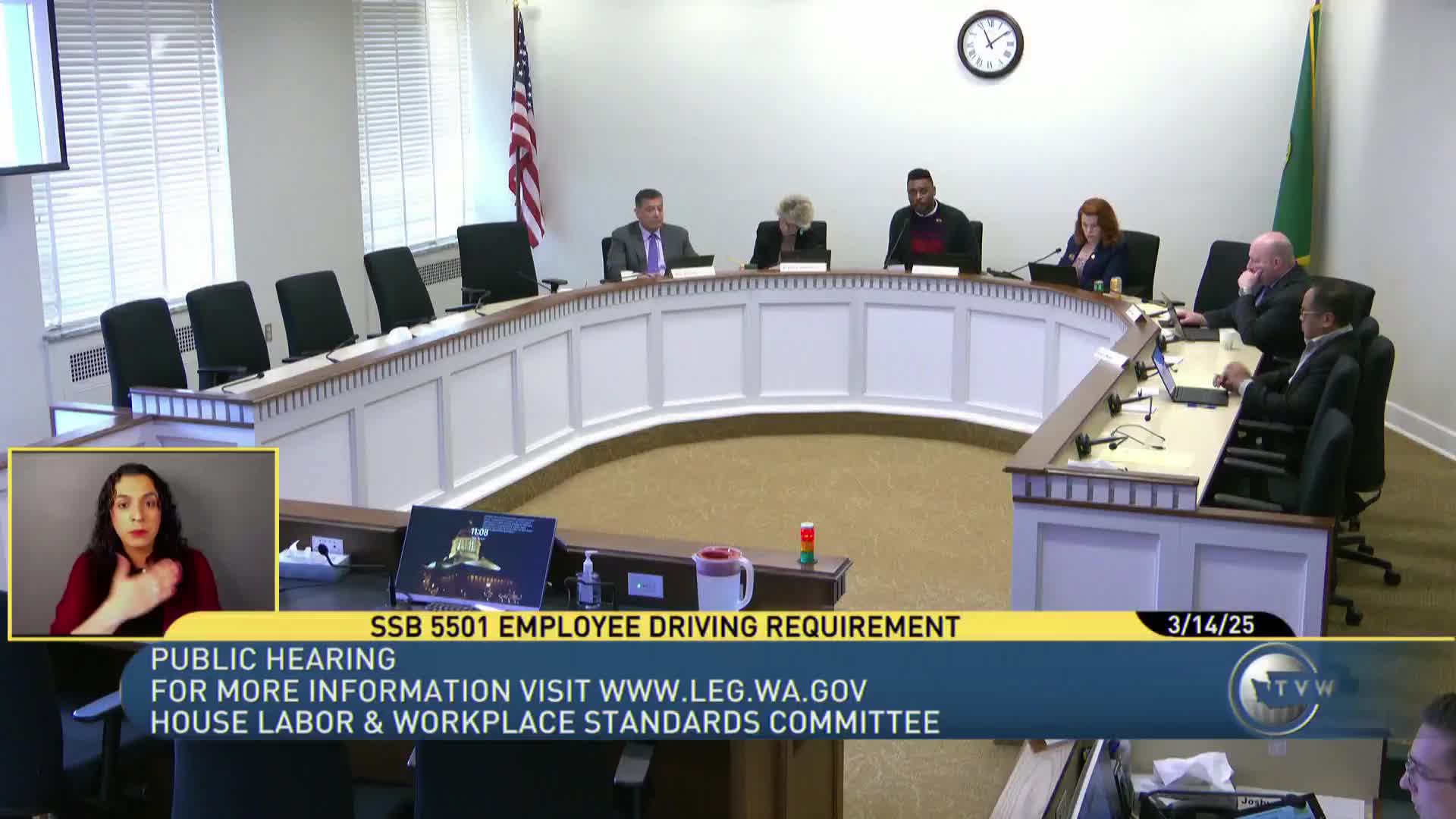Committee hears bill to ban blanket driver's‑license requirement for hiring with limited exceptions
Get AI-powered insights, summaries, and transcripts
Subscribe
Summary
Substitute Senate Bill 5501 would prohibit employers from requiring a driver’s license as a condition of employment or listing one in job postings except when driving is an essential job function or related to a legitimate business purpose; enforcement would be through L&I with statutory damages and civil fines.
At the Labor & Workplace Standards Committee hearing Friday, March 14, staff briefed substitute Senate Bill 5501, a proposal to bar employers from requiring a driver's license as a condition of employment or stating a license is required in job postings, with two stated exceptions.
Jim Morishima, staff to the committee, said the bill allows exceptions where driving is an essential job function or where driving relates to a legitimate business purpose. The Department of Labor & Industries would enforce the prohibition; remedies for a prevailing employee would include actual and statutory damages (at least $5,000), interest, costs, and attorney fees. L&I could levy civil fines of up to $500 for a first violation and up to $1,000 or 10 percent of damages for subsequent violations, staff said.
Supporters at the hearing included disability advocates and workforce organizations who said removing blanket license requirements would open jobs to people who rely on public transit or who cannot drive because of disabilities. John Lemus of AtWork said he relies on public transit and that the bill would be “a door opener for people with disabilities.” Bryce Yaden of Disability Rights Washington likewise supported the negotiated senate language, saying the compromise preserves safeguards while expanding access to employment.
Business groups including the Building Industry Association of Washington, the Washington Trucking Association, the Washington Retail Association, the Associated General Contractors, and others told the committee they worked with sponsors to reach negotiated language and asked the committee to respect that compromise. Mike Ennis (BIAW) and Amber Carter (Washington Retail Association) said the senate version represents a middle ground intended to be consistent with approaches in neighboring states and to reduce compliance problems for border communities.
Committee members from agricultural and rural districts asked about impacts on farm and seasonal workers who travel between fields; proponents and supporters said the senate compromise and its exceptions were intended to preserve legitimate business needs while removing blanket, non-job-related requirements. The committee closed testimony and moved on to other items.
